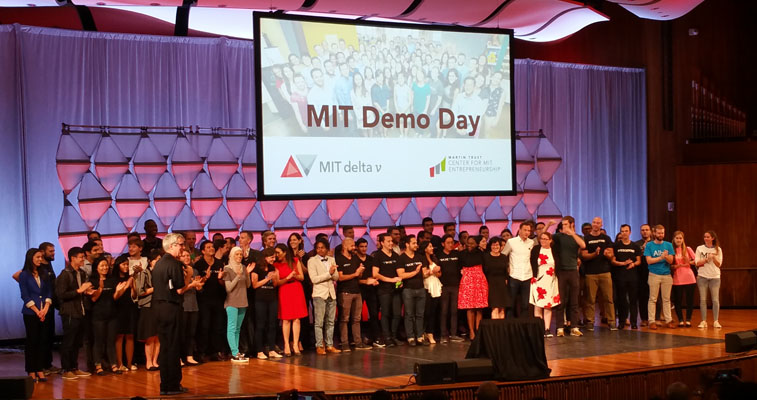“If you’re looking for another dating app, you won’t find it here,” Bill Aulet, the Managing Director of MIT’s Martin Trust Center, joked. “We wanted our entrepreneurs to create companies with a social purpose.”
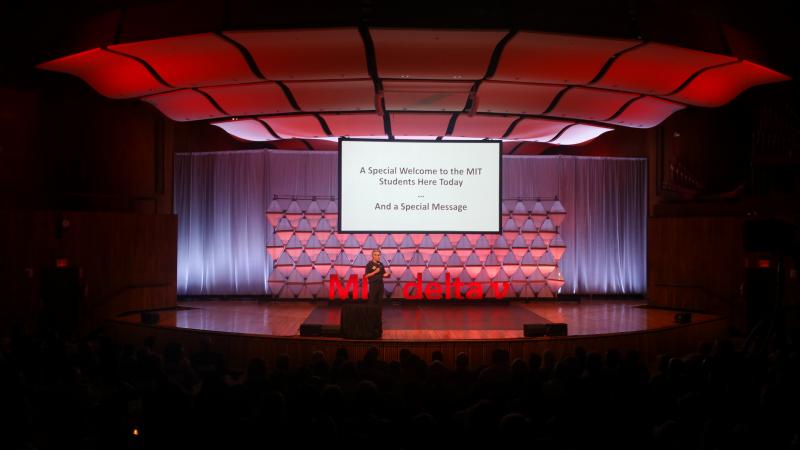
On September 9, the Kresge Auditorium at MIT was the stage for the early-stage startups in the school’s delta v accelerator. It was their annual Demo Day event where students, alumni, the press, and investors were welcome to take a seat and see what early-stage companies were in attendance.
For the 2017 delta v cohort, Aulet spoke about how the delta v program has grown since its inception and told the crowd this is the largest cohort since its inception. This year, 21 companies have started through the cohort. This year is also the first time the program accepted students and alumni from other schools, as Aulet wanted the program to bring more inclusiveness to the program.
Each year, the event invites a guest speaker. In another first, Aulet welcomed a delta v alumni: Shireen Yates, Co-Founder, and CEO of Nima Labs. Yates took the stage to talk about her time spent in the accelerator. Yates also gave a brief history of Nima.
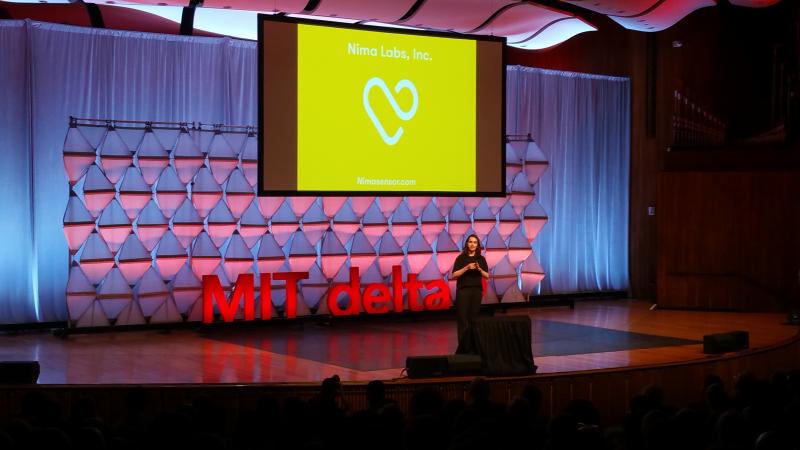
Six Standout Companies of the delta v 2017 Cohort
The companies presented their products and services, with each of them trying to solve a major problem. For example, Mesodyne created a device for soldiers to charge their electronic devices on the battlefield; Roots Studio is allowing artists in the Middle East and Asia to share and sell their artwork online; W8X uses robotics and machine learning to help athletes get the most out of their strength training exercises.
While every company told a great story behind what they do and had fantastic products and/or services, I chose six standout companies based on their potential overall impact in their particular market.
Founded by two Ph.D. candidates at MIT, Infinite Cooling has created a device over the course of three years to help power plants reduce the amount of water that is being wasted through steam clouds. Co-Founder and CEO, Karim Khalil, projected their devices could save an average power plant close to 150 million gallons of water. Also, in one of the more humorous presentations, Khalil used Homer Simpson’s “career” working in a power plant as part of their presentation.
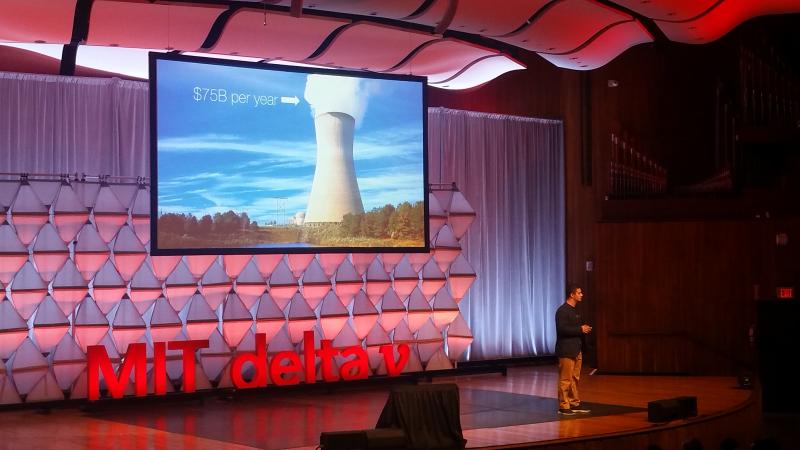
It’s shocking to hear about the opioid crisis going on in cities and surrounding towns. Biobot Analytics Co-Founder and CEO, Newsha Ghaeli, wants to pioneer a new way of analyzing data while users are still alive. Biobot Analytics created a robot to analyze a city’s sewage to measure opioid consumption, with the goal to prevent further usage in a community. Ghaeli also showcased a demo where their robot (nicknamed Luigi after the Super Mario Bros. character) being deployed in Cambridge.
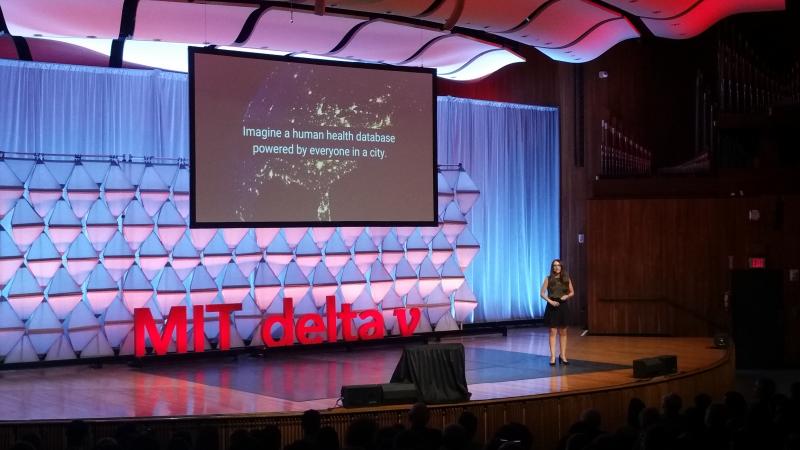
Andrew Antos is a practicing lawyer who was sick and tired of going through packets upon packets of paper to find important information within all kinds of agreements. Antos founded Klarity to create a platform to automate, and curate, the specific information lawyers need regarding sales agreements, leases, etc. At the after party, Antos said the company is launching in the next month.
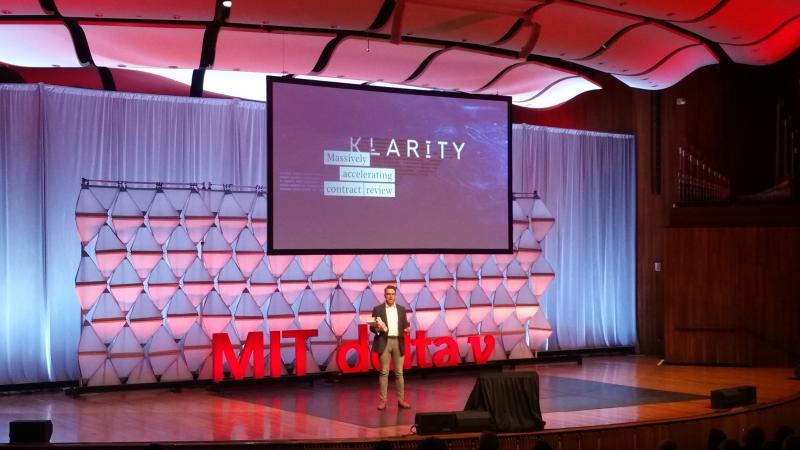
Those who suffer from mental health issues, such as depression or severe anxiety, will sometimes have trouble finding the right therapist. Sophia’s founder, Eva Breitenbach, wanted to create a way for those who are struggling to find the therapy they need. The company has connected with several therapists in the Boston area.

Pine Health is a team of medical students and professionals looking to give a helping hand in the home care market. “When a patient is leaving the emergency room, they are only given 30 minutes worth of training on what they need to do,” Co-Founder Lina Colucci said addressing the problem. Pine Health created a platform that gives personalized and automated responses for patients when they have a question. For example, a user can ask Pine Health which medication to take and it will give an answer.
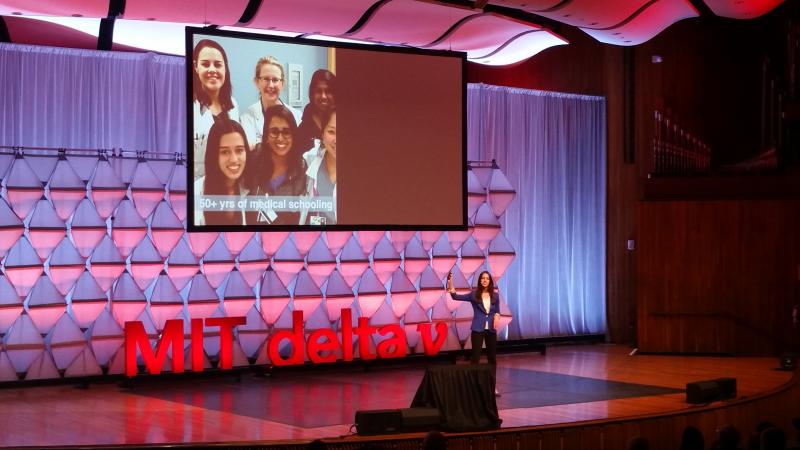
AR and VR are huge industries in the Boston tech scene, but Waypoint is the only AR-oriented startup in the delta v accelerator. Waypoint is utilizing AR to help spread knowledge amongst employees in jobs that require hands-on work. One of the purposes they showcased was with training new employees. As part of the presentation, Umar Arshad (Waypoint's Co-Founder and CEO) used scientists and electrical engineers as the primary user base for their product.

Colin Barry is a contributor to VentureFizz. Follow him on Twitter @ColinKrash.

